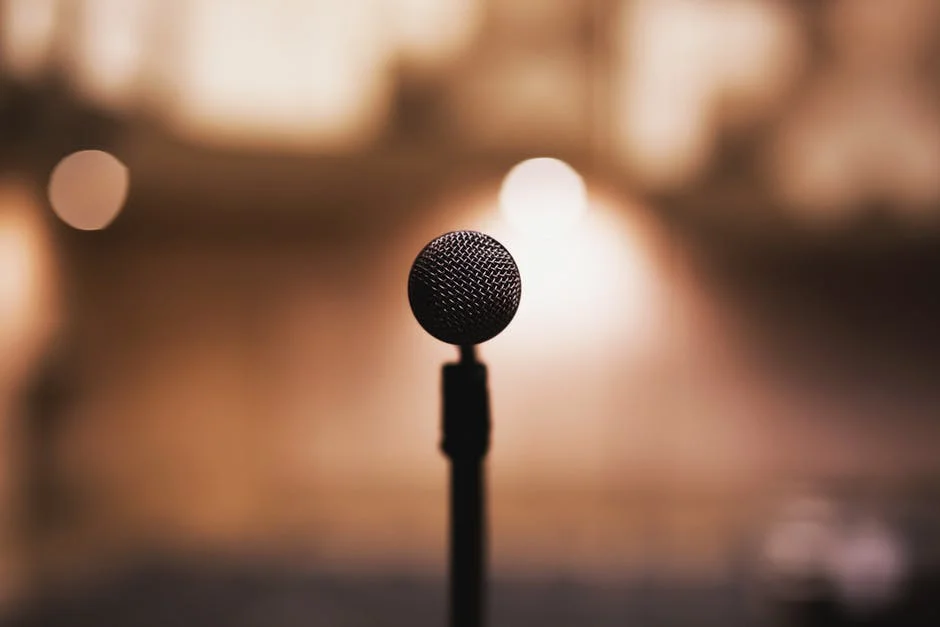Public Speaking Is Scary
It's not natural, and it triggers all sorts of anxiety.
In fact, science shows us that public speaking triggers all kinds of stress hormones, better saved for a confrontation with a grizzly bear.
Despite that, every single day, people like you get in front of others to inform, demonstrate, teach, lecture, give sermons & eulogies, defend theses, deliver addresses, pitch proposals, conduct workshops or are called upon to, 'Please, just say a few words." (Surprise!)
anyone can master the art of public speaking
With a relatively small number of simple techniques, you can command the stage. When you train with me, you'll learn how to:
Tame your nerves
Find your individual voice & style
Learn how to be your genuine, personable & confident self
...whether you're speaking to a room, a banquet hall, an auditorium, or an arena full of people, and with or without a script.
INDIVIDUAL AND GROUP COACHING, FROM BEGINNER TO ADVANCED.
Painfully shy and barely audible, Lauren admits she was traumatized when her second grade teacher told her sternly to "stop talking."
It has affected almost every interaction she has had since. Now, as a considerably older and exceptionally bright student, she is being given responsibilities that include addressing her classmates and others and wants to overcome her acute self-consciousness.
Her ability to be heard was a 1 on a scale of 1-10 when she first began coaching. After just five sessions, she speaks at a 3 and has already begun to relax her shoulders, creating a more confident presence. The changes she has made thus far have allowed her to hear herself for the first time in years. "I think I have a nice voice," she says, both surprised and delighted. She has inspired herself enough to believe she might be ready to present the valedictorian speech when the time comes."
SPEAKING TIP: Connect With The Audience When Things Go Wrong
Tip: Always say "Thank you" before you say "Sorry"
Example: Someone from the back of the audience yells, "We can't hear you!" Reply, "Thank you! (pause) I'm sorry." Once you make the required adjustment, touch base with the audience again. "Is that better?" and perhaps add, "Let's continue." You will find the audience even more attentive than before the interruption.
When your first response is "I'm sorry," it amplifies the audience's discomfort caused by the initial disruption. They "worry" about what will come next. "I'm sorry" does nothing to allay their fear, and in fact makes them more uncomfortable. However, when your first response is "Thank you," the audience is put at ease, because they understand that you are in charge, and they don't have to worry. Then, when you say "I'm sorry" the audience is confident that all is okay, and is quick to forgive. You have earned their respect, and you're all in it together.


